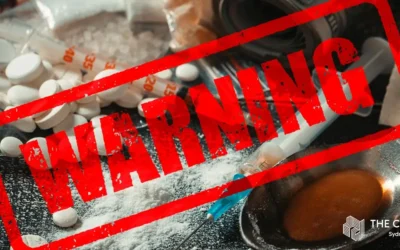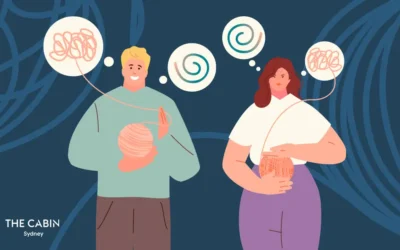Recent studies show cheese ranks high among addictive foods. Learn why, as well as what causes food addiction and how you can gain control over yours.

More (and more, and more) cheese, please.
Food addiction is real, and a series of recent studies prove it. The studies found that certain foods tend to be more addictive than others. The more processed a food is, and the higher its fat content, the more likely it is to cause an addiction. And although cheese is categorised as an unprocessed food, the findings put cheese-containing foods like pizza at the top of the list (followed by chocolate, chips, cookies and ice cream).
According to recent research, cheese too has addictive qualities, which trigger the same part of the brain as opiods – and this is due in part to its casein content. Casein is a protein found in mammalian milk that has been found to spark a reaction in your opiate receptors. Casein makes up 80% of the proteins in cow milk. It is found in all dairy products and has a variety of uses, for example as a food binder additive and component of protein supplements, but is most commonly used in cheese making as it is what causes liquid milk to coagulate into solid cheese when cooked. Producing one kilo of cheese requires about ten kilos of milk, so casein’s addictive properties are highly concentrated in cheese form, which could explain why cheese consistently ranks as the most addictive food.
Cheese addiction is a distinctly Western problem. Cheese consumption is rare in Asian and African cultures, where 70 to 90 percent of people are lactose intolerant. According to Dairy Australia, Australians consume about 13.5 kilos of cheese per year.
Eating in Excess
Food addiction is a behavioural addiction that is characterised by the compulsive over-consumption of high-fat or sugary foods — the two types which markedly activate the brain’s reward system. A growing body of research has revealed behavioural and neurological similarities between substance addiction and food addiction. When processed, fatty, salty or sugary foods are pleasurable, your brain becomes inundated with dopamine, causing a feeling of euphoria. As a result, the dopamine reward system in the brain becomes used to the pleasure spike. Just like a drug addict who will go to great lengths for a high, someone who continually needs a certain amount of flavour from fat, salt or sugar becomes used to the pleasure spike. Food addiction causes behaviours similar to those caused by drugs: inability to stop or reduce consumption, loss of manageability and continuation despite the knowledge of negative consequences. Food addicts can build up tolerance and experience withdrawals in the same way drug addicts do.
A study presented at a conference of the European College of Neuropsychopharmacology found that there is a marked difference in reaction to food between the brains of average-weight and obese people. Researchers took brain scans of participants while showing them pictures of food, to stimulate cravings, after they had eaten. What they found was that obese people displayed more of a reaction in the “reward centers” of their brains, therefore suggesting that obese people may have a predisposed tendency toward food addiction. Reward centers play a role in controlling our behaviour based on our perceived rewards and stimuli.
The Perils of Obesity
Food addiction can be just as serious as drug addiction, with equally dangerous consequences. According to the Australian Medical Association, “An estimated 9,500 deaths occur annually in Australia as a result of diseases and conditions attributable to excess weight.” It is estimated that in New South Wales alone there are approximately 150,000 food addicts, and the number is expected to double over the next ten years as the country battles obesity. Health risks accompanying obesity include:
- Heart disease and stroke — Risks of heart disease increase when you have high blood pressure and high cholesterol, both of which are found in people who are overweight. Losing just 5-10% of your body weight can significantly lower your risk of heart disease.
- Cancer — Obesity increases the risk of gallbladder, ovarian, pancreatic, colon, breast, uterine, kidney and esophageal cancers.
- Diabetes — Type 2 diabetes is directly linked to obesity. This risk can be counteracted by increasing physical activity, losing weight, eating a balanced diet and sleeping adequately.
- Breathing Problems — Obesity leads to breathing problems like asthma and sleep apnea. Sleep apnea causes heavy snoring and cessation of breathing for periods of time during sleep. It can cause daytime drowsiness, increase the risk of stroke, and even sudden death from repeated episodes of low blood oxygen and irregular heartbeat.
- Osteoarthritis — Carrying extra weight can result in this joint condition that affects your back, knees and hips by putting extra pressure on joints and wearing away at the protective tissue surrounding them.
- Gallbladder disease and gallstones — Gallbladder disease and gallstones — severely painful crystalline masses caused by a rise in cholesterol or malfunctioning of the gallbladder — are much more common in overweight people.
Take Back Your Health
Food addiction is a severe illness, just like any other addiction, and one of its symptoms, excess weight cannot be fixed by yo-yo dieting or stomach operations. While these ‘treatments’ may start to have a physical effect on the weight of the addict, the crux of the matter is not addressed — that is the emotional and psychological components that initially led to overeating and food addiction. Here are some steps you can take to combat food addiction:
- Eat whole foods — Start making the switch to a balanced diet rich in food from natural sources like fruits, vegetables, lean protein, whole grains, legumes, nuts and seeds. Over time, your tastebuds will begin to prefer these flavours over the overbearing and artificial flavors of processed foods.
- Cook at home — Cooking for yourself gives you control over what goes into your meals and into your body. It also cultivates your culinary and dietary planning skills and has the added benefit of being easier on your wallet. Experiment with healthy ingredients to create satisfying flavours without all of the fat, salt and excessive portion sizes.
- Cut down on salt and sugar — Replace refined sweets with naturally delicious treats like fresh or baked fruit. Choose unprocessed foods to avoid exceeding your recommended daily sodium intake. Eventually, your tastebuds will become less sensitive to sugar and salt, your cravings will reduce, and you will be able to appreciate more nuanced flavours found naturally in food.
- Get professional help — If you feel like your eating habits have turned into food addiction, it is imperative that you seek medical help rather than trying to go it alone. Food addiction is as complex and devastating as any other addiction, and the sooner you get professional treatment the better.
The addiction treatment experts at The Cabin Sydney use Recovery Zones, a model that is especially designed to treat addictions where complete abstinence is not possible — such as the case with food addiction. Our programme operates on an outpatient basis, and therefore clients are able to schedule their addiction treatment and meetings around their work or social life. We offer an initial assessment for all incoming clients. Contact us today to find out how you can get started on the path to good health.


